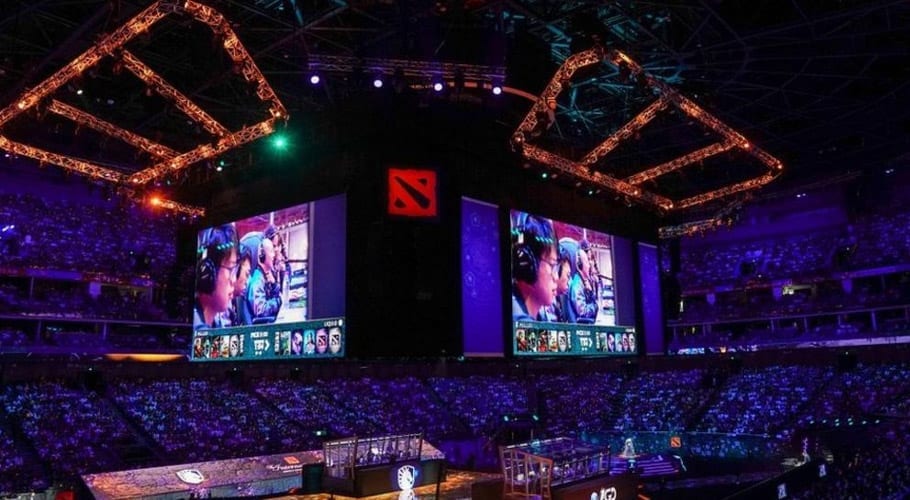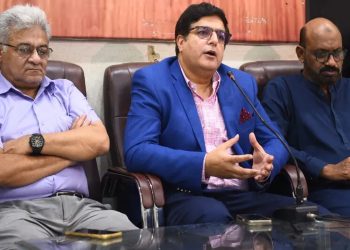In recent years there has been an increasing trend towards gaming what was once a hobby. Players around the world are competing on a professional level and brands and investors have taken notice.
Videogames stand as one of the most influential and largest consumed mediums present — with an approximate target market of over 2.3 billion gamers worldwide. The gaming market is growing with the increasing per capita income, growing interest, and the rising number of dual-income households, which augments the transformation of the global market.
With the increasing usage of smartphones and consoles and cloud penetration, the market shows high potential growth in the future. Let’s take an in-depth review of one of the biggest industry worldwide and its scope in Pakistan.
Government steps
Federal Minister for Science and Technology Fawad Chaudhry has recently announced that the first national-level E-sports tournament, which will take place in March 2021.
In an interview, the minister said, “The video game industry is worth 90 billion dollars. There is an annual growth of 20 percent in the video gaming industry in Pakistan.” He also assured that the government would be supporting and sponsoring local esports players in International tournaments.
Earlier in a tweet, Fawad Chaudhry said, “If you are not interested in reading and are interested in video games on the phone, be prepared the Ministry of Science and Technology is bringing a special program of video games programming so that we can become a part of this $90 billion industry.”
The gaming industry
Gaming has benefited from a 1990s push to attract more customers, analysts say, with the PlayStation leading the way in breaking down gender, age and class barriers. After the PlayStation came Microsoft’s Xbox in 2001 and Nintendo’s Wii in 2006, followed by the smartphone revolution as gaming’s popularity skyrocketed.
According to a recent report by Newzoo senior market analyst Tom Wijman, the global gaming market will generate $159.3 billion in revenue in 2020. That would be 9.3 percent year-over-year growth. Newzoo projects the industry to surpass $200 billion in revenue in 2023.
Game developers across emerging economies are continually striving to enhance gamer’s experience, launching, and rewriting codes for diverse console/platforms, such as PlayStation, Xbox, and Windows PC, which are incorporated into one product provided to the gamers through the cloud platform.
Pakistan gaming industry
At the beginning of this year, as the world was forced into lockdown by the COVID-19 pandemic, the world of e-sports gained mobility and took advantage of the situation. In Pakistan, however, e-sports have taken a backseat with the occasional tournament held at the local or university level.
Despite this delay, Pakistani gamers have taken initiative to participate in worldwide or regional tournaments and prove their mettle. After witnessing the escalating popularity of mobile games, the rise in digital app development took place.
The first-ever commercialised video game Cricket Revolution was developed by a Lahore-based start-up, Mindstorm Studios. Launched in October 2009, the game also holds the title to be an official online game for the Cricket World Cup 2011.
We.R.Play is Islamabad based gaming company founded by Mohsin Ali Afzal and Waqar Azim in 2010. Dream Chaser, a game developed by We.R.Play was published by the renowned Chillingo, a leading games publisher on iOS. The release of Dream Chaser marks a milestone for the gaming industry of Pakistan.
Pakistan representation at international level
Pakistani gamer Arslan “Ash” Siddiqui won the Tekken 7 Championship at the Evolution Championship Series — or Evo 2019 tournament — held in Las Vegas, becoming the first national player in the history to do so.
Musawer Khan, better known as Ghost Khan in the gaming community, is one of Pakistan’s top gamers and has won many national and international level gaming tournaments. According to Khan, one of the biggest impediments to the esports industry is the lack of support for players by institutions and the governments. After working hard to qualify for global tournaments, players are often denied visas to the host countries.



































